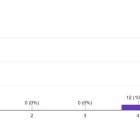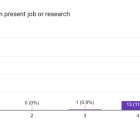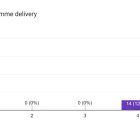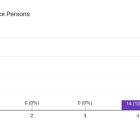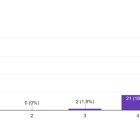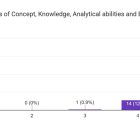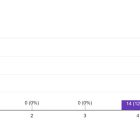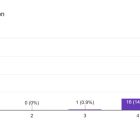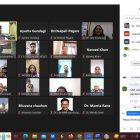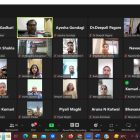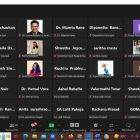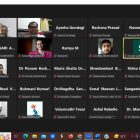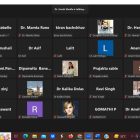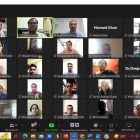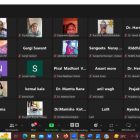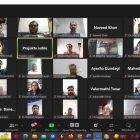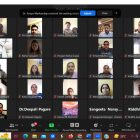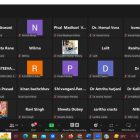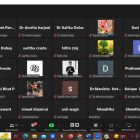Duration of Workshop: 10 Days (1st to 13th March, 2024)
Number of Participants Registered: 366
ICSSR funded virtual a ten days research methodology workshop was organized by Mahatma Night Degree College of Arts and Commerce, Chembur, Mumbai-71, from 1st to 13th March, 2024. The workshop was conducted by online mode on MES Zoom platform. The primary aim of organizing such a workshop was to equip teachers and research scholars belonging to social sciences and commerce. Hence course for the workshop was designed by the Course Coordinator Dr. Tushar A. Pawar to achieve the same. In tune with the primary aim objectives of the workshop were devised as:
- To enable the participants, to define their research problems, develop an approach to research problems and select suitable research design.
- To sensitize participants on the ethical aspects of social and behavioural research as well as plagiarism software.
- To familiarize the participants on the prerequisites in fieldwork and collection of quantitative / qualitative data and its methods.
- To provide expertise in statistical techniques and interpretation of statistical data.
- To impart capabilities for formulation and testing of hypothesis based on the nature of research.
One month prior to workshop we started circulating the workshop E-Brochure in the various academic WhatsApp groups and did publicity as much as possible. We have received amazing response from participants more than 366 participants registered for the workshop from various region of Indian territory as workshop was online.
The resource persons were the one with expertise in the respective fields and associated with some of the institutions of eminence. The list with detailed information about resource persons was shared as an enclosure with our application which finally got approved from ICSSR (WRC), Mumbai.
The workshop opened with a formal Inaugural session at 4.00 p.m. The workshop was inaugurated by the gracious guests Dr. Rohidas Kale sir and I/C/ Principal Dr. Ekanth Zhrekar.
The inaugural session started with opening remarks by Dr. Tushar A. Pawar (Course Coordinator). He elaborated the about workshop and objectives of workshop further he talked about what is Research? and importance of research methodology in the research. He also assured that participants will be benefited with workshop and they will be ready to undertake any research after completion of this workshop.
I/C Principal Dr. Ekanth Zhrekar heartily welcomed all the guests, participants, faculty members and students for the ten-day workshop. He delivered how knowledge and wisdom passed to generation after generation, stressed importance as well rigor of the research and concluded the welcome note with inspirational words.
Dr. Rohidas Kale, Institute of Science former Joint Director, Higher Education, Mumbai, the most honourable chief guest of the event addressed and emphasized the importance of research and the proper understanding of research, inclusion of research supervising methodology in social science, maximization of work minimization of weakness with proper time management, ethics in research. He emphasised that knowledge exploration is possible only through scientific research. after his address she declared that this workshop is opened and wished all the best to organizing team and participants.
Dr. Tushar A. Pawar course co-director formally proposed vote of thanks to management, principal, chief guest, Hon. Director ICSSR-WRC, organizing and technical team, participants and students for their presence during inauguration session.
Day 1
Date: 1st March, 2024
The first day technical session was handled by technical session in-charge Dr. Tushar A. Pawar. Dr. Tushar formally introduced resource person of the day Dr. Vishwanathan Iyer and handover the charge of session to Dr. Vishwanathan sir. The first technical session of the workshop was deliberated by Dr. Vishwanathan Iyer sir, Balaji University, Pune on “Fundamental of Research, types, steps and literature” who introduced the participants to the basic aspects of research, types of research on the basis of various parameters, importance and its characteristics. He also opened an insight about importance and procedure of conducting Quality Doctoral Research in specific to social science. First of all, he pointed that the quest for understanding social reality and human behaviour is at the root of methodological concerns. He explained the importance of two key concepts such as ‘research’, and ‘methodology’ to enable participants to understand the basics of any research in social science. It was pointed that research is more than an understanding of set of skills; it is a way of thinking. At the end of the session questions of participants answered by Dr. Vishwanathan sir and after that Dr. Tushar A. Pawar extended his gratitude on behalf of organizing committee to resource person Dr. Vishwanathan Iyer.
Day 2
Date: 2nd March, 2024
Day two of the workshop was handled by Dr. Anaya Markandeya. The topic for day two was ‘Variables, Objectives and Formulation of Hypothesis in Research’. The session started with the introduction of resource person for the day Dr. Seema Rawat.
Dr. Seema Rawat is an Assistant Professor at KES Shroff College, Mumbai.
Dr. Rawat started the session with the interaction with participants. She made the entire session interactive. Dr. Rawat talked about the variables, and its types. She explained the significance of dependent and independent variable in the research study. She explained its types like confounding variable, controlled variable etc. in detail.
Further, she discussed how to frame objectives of the study for Ph.D. research proposal as well as for research paper.
After a small break Dr. Rawat talked about the concept of hypothesis. She explained the types and importance of hypothesis in research. She described the formulation of hypothesis in connection with the objectives of the study.
The session for day three was concluded with the vote of thanks by Dr. Anaya Markandeya.
Day 3
Date: 4th March, 2024
Day three of the workshop was handled by Dr. Anaya Markandeya. The topic for day two was ‘Population, Sampling methods and Research Tools’. The session started with the introduction of resource person for the day Dr. Yogita Sanas.
Dr. Yogita Sanas is a senior faculty member of Department of Mathematics and Statistics in L.D. Sonawane College, Kalyan.
Being a senior statistician, Dr. Sanas started the session with significance of statistics. Then she talked about the concepts and types of data, variables and measurement of scales. Further, the concepts of population, study population and samples were covered by her.
After the break the resource person covered sampling methods i.e. Probability and Non-probability sampling methods. The types of methods convenience sampling, snowball sampling etc. were discussed in depth during the session. At the end of session Dr. Sanas explained the presentation and classification of data with the use of various methods.
Dr. Sanas made the session very informative and interactive with the help of excellent power point presentation.
The session for day three was concluded with the vote of thanks by Dr. Anaya Markandeya.
Day 4
Date: 5th March, 2024
Dr. Harsh Shukla conducted a comprehensive session on basic statistics. The session aimed to provide participants with a solid understanding of fundamental statistical concepts, including measures of central tendency, chi-square analysis, t-tests, and regression analysis. During the session, Dr. Shukla elucidated the concept of central tendency, emphasizing the importance of measures such as mean, median, and mode in summarizing data. Practical examples were used to illustrate how these measures can be applied in real-world scenarios to interpret data accurately. Furthermore, Dr. Shukla delved into the application of chi-square analysis, explaining its significance in assessing the relationship between categorical variables. Participants were guided through the steps involved in conducting chi-square tests and interpreting the results effectively. The session also covered t-tests, which are commonly used to compare the means of two groups. Dr. Shukla provided insights into the different types of t-tests and when each should be employed, along with practical demonstrations to enhance understanding. Additionally, participants were introduced to regression analysis, a powerful statistical technique used to model the relationship between variables. Dr. Shukla elucidated the concepts of linear regression, highlighting its application in predicting outcomes based on predictor variables. Overall, the session proved to be informative and engaging, equipping participants with the essential knowledge and skills needed to apply basic statistical methods in their respective fields.
Day 5
Date: 6th March, 2024
Dr. Suraj Sharma conducted a comprehensive session on Quantitative Technique in Research Methodology. The session aimed to provide participants with a solid understanding of quantitative research which is to systematically investigate and measure the relationships between variables using numerical data and statistical analysis. During the session, Dr. Sharma elucidated the concept of Quantitative research Design and analysis methods a type of research that collects and analyzes numerical data to test hypotheses and answer research questions. This typically involves a large sample size and uses statistical analysis to make inferences about a population based on the data collected. Dr. Sharma delved into the steps of Research Design in the beginning which are:
- Descriptive Research Design
- Correlational Research Design
- Quasi – experimental Research Design & Experimental Research Design
The session covered Descriptive Research Design in details. Descriptive research describes the characteristics of a population or phenomenon being studied. This research method is used to answer the questions of what, where, when, and how. Descriptive research designs use a variety of methods such as observation, case studies, and surveys to collect data. The data is the n analyzed using statistical tools to identify patterns and relationships. Dr. Sharma provided insights into Correlational research de signals o which is used to investigate the relationship between two or more variables to determine whether a relationship exists between variables and to what extent they are related. Dr. Sharma provided various quantitative research analysis methods, such as:
- Statistical analysis
- Regression analysis
- Factor analysis
- Time series analysis
Statistical analysis is the most common quantitative research analysis method. It involves using statistical tools and techniques to analyze the numerical data collected during the research process. Regression analysis is used to analyze the relationship between one dependent variable and one or more independent variables. Factor analysis is a statistical technique used to identify underlying factors that explain the correlations among a set of variables. Time series analysis is a statistical technique used to analyze data that is collected over time. It involves identifying patterns and trends in the data, as well as any seasonal or cyclical variations. Overall students were happy to learn the Research methodology and what factors to be considered in selecting the most suitable research method.
Day 6
Date: 7th March, 2024
The Co-Convenor of the Research Methodology Workshop Asst. Prof. Dr. Tushar Pawar, welcomed the resource person Dr. Shilpa Deo and all the participants for the 5th Day of the workshop. He invited Assoc. Prof. Dr. Lata Krishnan to introduce the resource person. Dr. Shilpa Deo is serving as a Research Fellow at the Centre for International Trade and Business in Asia, James Cook University, Australia. She is an experienced Teaching Associate with a demonstrated history of working in the higher education industry. Skilled in Stata, Analytical Skills, Microsoft Excel, Microsoft Word, and Data Analysis. Strong education professional with a Doctor of Philosophy -PhD focused in Economics from Gokhale Institute of Politics and Economics. Dr. Shilpa Deo has been awarded NET with JRF in Economics by UGC. Publications.
Dr. Lata continued to read out the titles of the research papers published by Dr. Shilpa Deo in national and international journals of repute. She described her as a young passionate researcher who worked extensively on Poverty in Pune and census studies.
Session 1 With the use of a power point presentation, Dr. Shilp Deo approached the topic “Qualitative Research” beginning by explaining its meaning, definition, significance and methods. With the use of several examples, she explained how qualitative research gives an added angle or new dimension to the quantitative techniques adopted by the researchers. While quantitative techniques may be used to understand the scatter of data from the line of central tendency, the case studies collected using qualitative technique helps in saturation and emphasizes vividly, an established pattern.
Sessions 2 Dr. Deo explained Snowball Sampling Techniques, Triangulation and Ethnographic field work. “Triangulation” research method as a tool of social science research was explained clearly with the use of examples. Ethnographic fieldwork was explained at length.
At the end of this session the cohort was divided into teams through the Zoom platform breakout rooms, where they were given a topic to prepare a questionnaire to question a group of respondents.
Topic ”Importance of originality and innovation in an environment where informagtion is available at a click of a button” This exercise was a fruitful one as participants were able to frame questions (not more than 7 to 8 questions) to get respondents to answer as a primary source of data / case studies, for qualitative research.
Day 6 of the RM Workshop ended with the vote of thanks proposed by Assoc. Prof. Dr. Lata Krishnan. Co-Director of the RM Workshop Asst. Prof. Tushar Pawar concluded the session by giving instructions for the next day.
Day 7
Date: 9th March, 2024
The Co-Convenor of the Research Methodology Workshop Asst. Prof. Dr. Tushar Pawar, welcomed the resource person Dr. Deepali Gadkari. Associate Prof. Dr Lata Krishnan introduced the resource person as an ardent Geographer and researcher undertaking several prestigious research projects using GIS remote sensing techniques.
Session 1With the use of a powerpoint presentation, Dr. Deepali Gadkari approached the topic “Application of GIS and Remote Sensing in Research” beginning by asking a question. Why are trees green in colour? She explained that trees reflect energy that we cannot see with our naked eyes, Infra-red rays. Reflected energy goes in different direction through the atmosphere. She explained Active remote sensing, digital image, an 8-bit data gives 256 shadew. She defined Spatial Data. She explained how GIS allows us to capture dagta from various sources put in one device and displayed in one; platform. It allows us to present,analyse and manipulate data collected from different sources. Dr. Gadkari made references to many of the projects she had completed successfully and explained how they used GIS and Remote Sensing in Research. She had intersint slides with pictures and data to support her illustrations.
Sessions 2 Dr. Deepali Gadkari went on to explain the importance of Spatial Data. At every instance she explained that this technique may be used successfully in research projects. At the end of the session, she hand held us through QGIS. She asked the participants to download QGIS and taught them how to use it. The participants were excited to do these exercises and had a lot of questions. She made the participants think. Day 7 of the RM Workshop ended with the vote of thanks proposed by Assoc. Prof. Dr. Lata Krishnan. Convenor of the RM Workshop Asst. Prof. Dr. Tushar A Pawar concluded the session by giving instructions for completing the feedback form and further instruction for the next day of the RM Workshop.
Day 8
Date: 11th March, 2024
On Day 8 of the Research Methodology Workshop, Dr. Anurag Asawa from the Gokhale Institute taught us some really important stuff about numbers. He showed us how to find the middle of a bunch of numbers, which is called the “central tendency.” Dr. Asawa made it simple by giving examples we could relate to, like how to find the average test scores or the most common height in a group of people. He explained that these numbers helped us understand what was typical in a bunch of data.
Participants also learned how to understand what these numbers meant. It wasn’t just about finding an average; it was about knowing what that average told us about the whole group. Dr. Asawa made sure we understood by answering all our questions. Besides, he talked about different tests we could use to understand data better. These tests helped us figure out if the researchers’ ideas were right or if something interesting was going on in our research.
In the end, Dr. Harsh Shukla thanked Dr. Asawa for teaching so well. The participants felt more confident about using numbers in our research after the workshop. To sum up, Dr. Asawa’s workshop was super helpful. Participants learned how to make sense of numbers in research.
Day 9
Date: 12th March, 2024
On Day 9 of the Research Methodology Workshop, Dr. Sagarika Damle led an informative session focused on the Research Proposal and Report Writing in research, with a special emphasis on its application in social science research.
Dr. Damle introduced the participant about importance of Research Proposal and explained how it can be a powerful tool for introduction of the research study. She provided examples to illustrate how powerful research proposal visualize various social phenomena and has impact on the research outcome. Throughout the session, Dr. Damle explained the important steps of research proposal writing and commons mistakes which should be avoided by the researcher. Moreover, Dr. Damle emphasized the importance of introducing correct research methodologies in the proposal, highlighting its potential to enhance the quality and depth of research findings in the field of social sciences. Participants engaged actively in the session, asking questions and seeking clarification on various aspects of Research Proposal and Report Writing and its relevance to social science research.
In conclusion, Dr. Sagarika Damle’s session on Day through her expertise and practical examples equipped participants with a better understanding of how report writing can be leveraged to enrich and advance research endeavours in the field.
Day 10
Date: 13th March, 2024
Day Ten session was conducted by Dr. Prashant Kumar Choudhary sir on Research ethics, Refencing and writing of research report. Reference management tool and Plagiarism checking. He discussed about various scientific methods available in the research field and role of ethics in doing the research. Researcher must publish plagiarism free research. Publication ethics are very important and it should be a responsibility of the researcher to follow the publications ethics.
He talked about how we can get electronic refences and how to cite them in our papers and reports. Also, he talked about APA, Chicago and MLA style. He also gave insight of how plagiarism is important and as per UGC norms which plagiarism software can be use. Also talked about mendelle software for writing references.
Valedictory Function.
In the second session of last day of the workshop had its valedictory session. This session was hosted by Dr. Tushar A. Pawar. He requested our I/C Principal Dr. Ekanth Zhrekar to give the welcome address and concluding remark. Dr. Zhrekar congratulated all the participants for registering for workshop and also congratulated organizing committee for conducting workshop smoothly. He also highlighted benefit of this course in their future research and wished all the participants for their future endeavours.
Then Dr. Tushar A. Pawar invited Dr. Anaya Markandeya to introduced chief guest of valedictory function Dr. Lata Menon, Professor, Deputy CEO Pillai HOCL Campus and Principal Pillai HOC College of Arts, Science and Commerce, Rasayani and requested her to address the gathering. Dr. Lata Menon also highlighted importance of research and what kind of precaution we have to take while selecting topics and while undertaking research work. She also points out that research is endless process where we can continue our research so that our work should benefit the society and concluded her talk.
Further Course Coordinator Dr. Tushar Pawar to give brief summary of workshop. Dr. Tushar presented the brief report of the 10 days’ workshop in precise way. He also given instruction about certificate distribution and feedback form.
Dr. Tushar A. Pawar also invited few participants to give reflection about workshop and participants happily had positively given feedback about conduction of workshop and also about resource persons.
At end of the valedictory function Dr. Harsh Shukla had given formal vote of thanks in that she extended her gratitude to management of the college, ICSSR (WRC) Director, Course Director and Co-Director, Participants and organizing committee.
The workshop was concluded with National Anthem.


